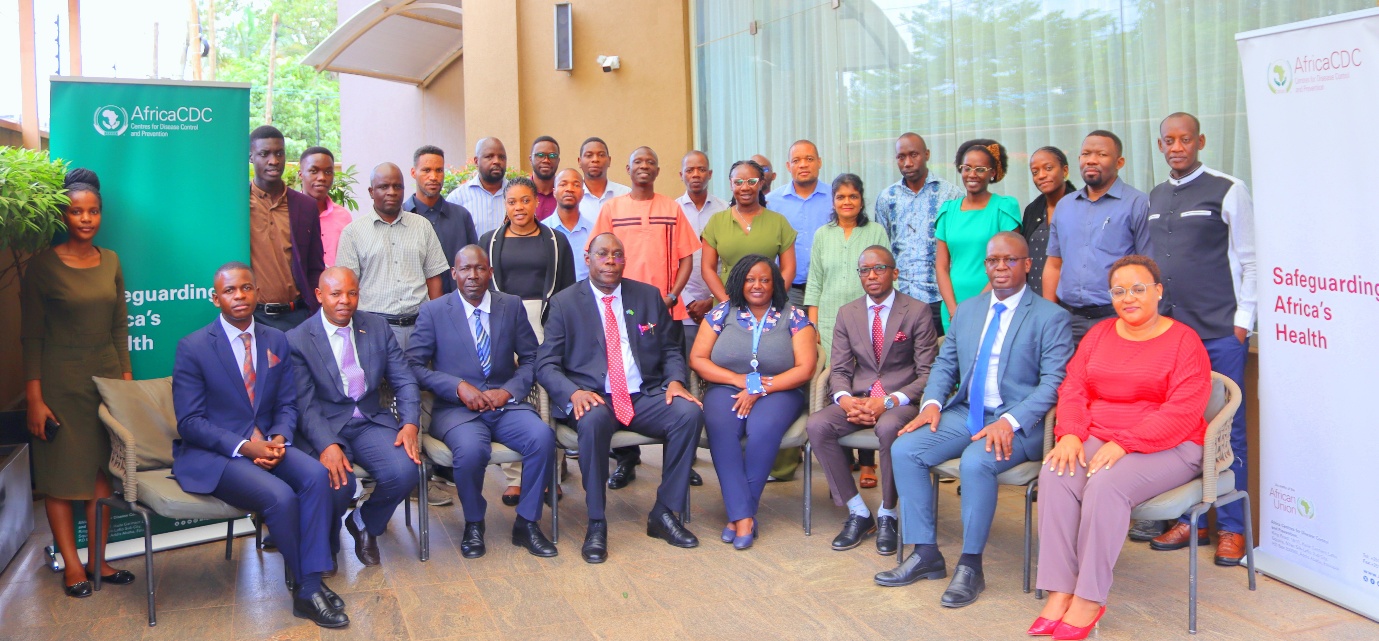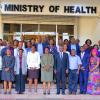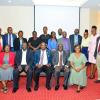Uganda Hosts Africa’s First Wastewater Surveillance Training
Kampala: 19th /May/2025.
The National Health Laboratory and Diagnostic services (NHLDS) hosted the first Wastewater and Environmental Surveillance Training in Africa.
This regional workshop, held in Kampala, brought together laboratory scientists and public health experts from ten African countries to strengthen disease surveillance systems through innovative, non-invasive wastewater testing. The ten-days training is hosting participants from: Congo, Ethiopia, Zambia, Kenya, Uganda, Malawi, Angola, Rwanda, Tanzania, and the Democratic Republic of Congo.
The training is supported by Africa CDC in partnership with Ministry of Water and Natural resources, World Health Organisation, National Water and Sewerage Corporation and Uganda Virus Research Institute.
The workshop was officiated by Dr. Joseph Okware (MoH Director Governance) who represented the Director General of Health services, he was accompanied by Commissioner Health services Dr. Allan Muruta, Simon Etim- Assistant Commissioner Water Quality Management (MWE), NHLDS Lab Director Dr. Isaac Ssewanyana.
Dr. Okware stressed the importance of waste water based and environment surveillance to Africa’s public health.
“For a long time, we have heavily relied on clinical data which has limitations and miss the early signals for asymptomatic, mild and unreported cases of disease outbreaks. Integrating waste water and environment surveillance on public heath is the way to go to detect early and respond to minimise the effects of epidemics. By analysing pathogens shed in human waste, scientists can detect disease circulation even before individuals seek medical care.” Dr. Okware noted.
He therefore called for Africa to be self reliant in everything through knowledge sharing, shared responsibility as a public threat anywhere is a threat everywhere.
“64% of Uganda’s water is transboundary from the Nile basin and collects here from Burundi, Kenya, Tanzania and DRC who are located upstream. This means that we need think broader in management of upstream to protect the down stream people through the 5Rs. This regional training is in line with Uganda’s one health initiative and we believe the human capacity development for other African countries will see a transfer of critical skills,” Simon Etim – Asst. Commissioner Water Quality Management- Ministry of water and Environment.
In 2023, Uganda expanded its wastewater surveillance beyond Polio to include SARS-CoV-2, and in February 2025, it successfully detected Mpox and Influenza A H1N1 through wastewater samples even before clinical cases were confirmed.
“In early April, wastewater results showed a rising Mpox signal even as clinical cases were declining. This triggered increased active surveillance, through which we noted a rise in Mpox cases—highlighting its potential as a public health tool.” – Commissioner, Dr. Allan Muruta.
“In mid-February this year, we successfully detected both Mpox and Influenza A H1N1 in wastewater samples, with Influenza A appearing in wastewater even before any clinical cases were reported in Uganda. We then after two weeks confirmed a case in Kisoro, highlighting the early warning potential of this surveillance method”, Andrew Teba- Laboratory Manager CERSL-NHLDS.
The ten-day training was both theoretical and practical at the National Water and sewerage Corporation treatment plant in Bugolobi and covered;
Fundamentals of waste water and environment surveillance
Quality management system based in ISO 17025
Bio risk management based on ISO 35001 and 15190
Operation of sewered and none sewered waste sites
Collection, concentration, extraction and detection methods.
Legal and ethical considerations
Genomics and data analysis and utilisation for public health.
Uganda’s Outbreak Response:
Uganda’s leadership in laboratory systems has been proven through decades of managing infectious diseases. The country has dealt with over 34 viral haemorrhagic fever outbreaks in the last 20 years, including 10 Ebola, 4 Marburg, and multiple Crimean Congo Haemorrhagic Fever and Rift Valley Fever outbreaks.
In 2022, Uganda successfully contained an Ebola outbreak with over 142 cases in just 69 days and without exporting a single case. In 2025, the index case of the ongoing Ebola outbreak was confirmed in under 12 hours, with genomic sequencing completed in 48 hours and mobile labs deployed in 72 hours.




